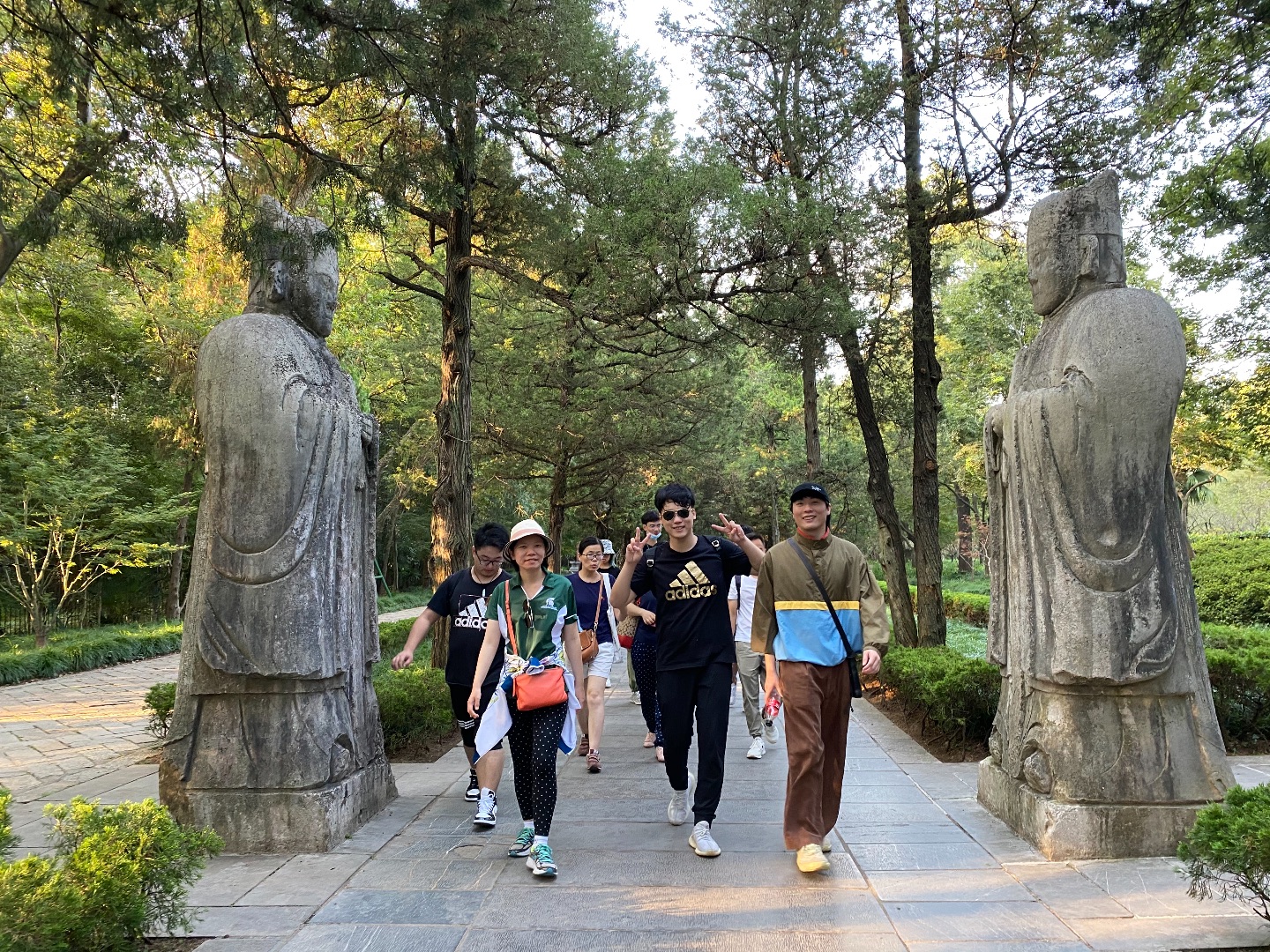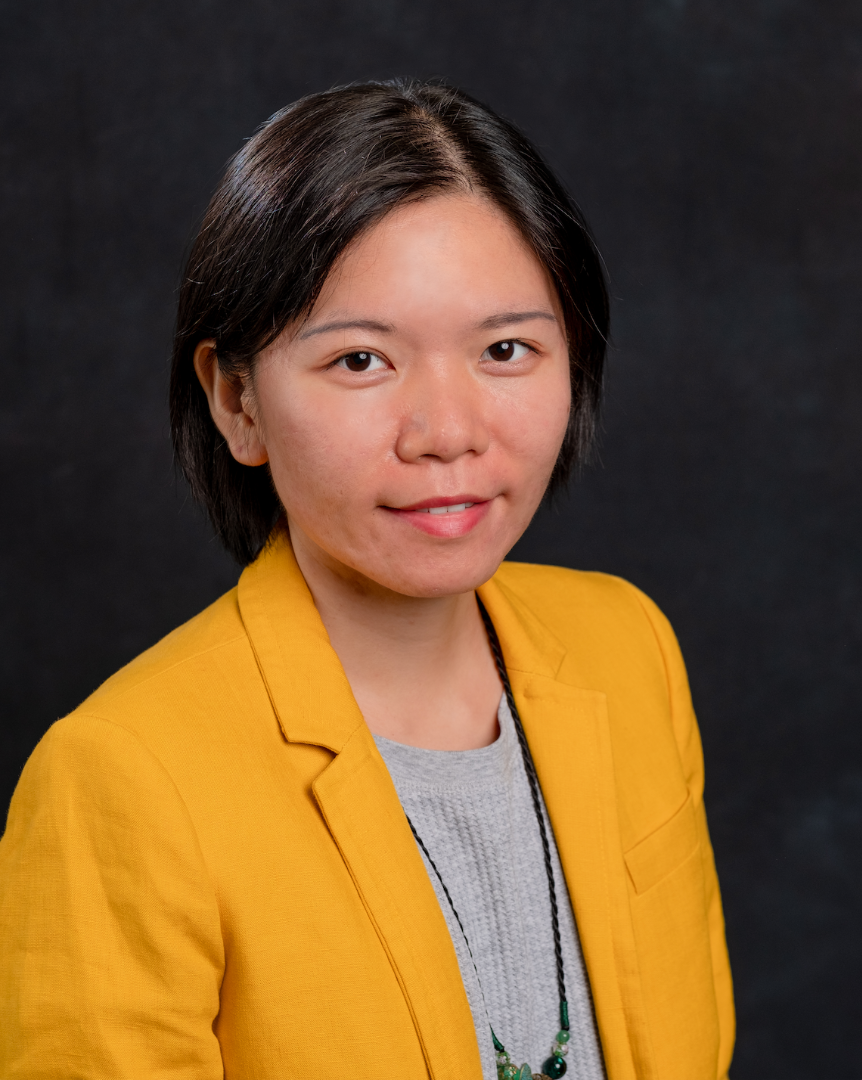
Jing Luo is the Director of Marketing and Recruitment in Beijing for the Office of China Programs (OCP). Before joining the Spartan family in August of 2019, she worked with international students at Miami University and the University of Vermont. Jing thinks her current position at MSU as the “flip side” of what she used to do, because
Jing considers herself as the “outpost face of MSU in China” and the “bridging person between Chinese parents and MSU.” Because of her position in Beijing, parents of prospective Chinese international students usually think she is the direct person in contact with MSU. Many parents don't speak English, so they usually don't directly communicate with MSU units; instead, they ask Jing a lot of varied questions. As a result, Jing has to work “here and there” – she is in constant communication with MSU units across the campus such as Academic Advising and Residential Life so that whenever a prospective Chinese student or parent asks about MSU, she is ready to provide the most updated information.
Jing’s primary work responsibility is with MSU International Admissions, and she understands family/parent outreach is incredibly valuable for MSU’s successful recruitment in China. This is because Chinese parents are quite diligently involved in making decisions for their children whether and where to study abroad. Therefore, establishing a good relationship with Chinese parents is key to MSU’s international recruitment.

The current pandemic has drastically changed the way Jing works. Traditionally, she would be on the road for recruitment. She would be travelling to several cities for recruitment at high schools, college fairs, and doing in person info sessions. Now that a lot of this has moved online, she anticipates dramatic but healthy change in her work moving forward. She says, “Losing face-to-face interaction with prospective students and families is not easy in our job. But I think because of the COVID-19 many offices and departments at MSU right now are discussing different ways to engage with our student … Moving forward, I think this will be a time of change, from a kind of traditional U.S. higher education setting to a new form, a new normal … I'm positive that we can do a lot more online."
A positive outcome from the pandemic is MSU’s improved outreach in China. Jing explained that before the pandemic, all MSU recruitment events were held in-person and were geographically limited. Now that most of the events have transitioned to online, MSU can reach more Chinese families from all over China. In Jing’s opinion, the ostensibly unfortunate online transition caused by the pandemic in fact improved MSU’s outreach accessibility beyond just the developed regions in China, which ultimately contributes to education resource equity.

What makes Jing’s job different from the people who are working in admissions in East Lansing is obviously her Beijing location. Not only does she need to be flexible when working with prospective student families, institutional partners, and organizational leaders with quite different expectations from those from the U.S., she also needs to manage communication with her colleagues in the U.S. because of the 13-hour time difference. Fortunately, Jing thrives in a collaborative work environment and finds some really good team vibes from OCP and MSU. She says, “People are really the factor that I come to OCP…people are very supportive and caring. They care about how we can better support our students … I'm far away from all the people who are based in East Lansing; it is very important for me to know the people who understand and support me.” The collaborative and supportive efforts within the OCP have not only benefited Jing herself, but Chinese international student families.

The OCP has helped “glue” some MSU campus units together to consolidate services supporting our Chinese international student families during the pandemic. Within a large institution like MSU, its operating system is decentralized, meaning that campus units often run separately with their distinctive agendas. The rapid transition to a virtual working environment during the current pandemic made collaborations among MSU units more challenging. But Jing thinks that the OCP “call[s] people together. Let’s get started. Let’s do this. Let’s make a collaborative effort to support our students.”

Jing used the example of the Virtual Office Hours (VOH) –a series of interactive information sessions led by the OCP and the Office for International Students and Scholars (OISS) and supported by various MSU units– to demonstrate how the OCP “glues” people together. The COVID-19 global pandemic has been a very challenging time for Chinese students and their parents who were overwhelmed by all the uncertainties in the changing international education environment after MSU ordered the majority of its staff members to work online. While the OCP worked hard to deliver the most updated MSU information relevant to Chinese international student families, the office also wanted to bring MSU “closer” to them by maintaining a more interactive relationship between MSU staff and Chinese student families through virtual platforms. The VOH sessions were well-received and quickly gained support from many campus units such as Neighborhood Student Success Collaborative and Career Services Network, with which Chinese international students interact frequently pre-pandemic.

Jing thinks that collaborated efforts between MSU units like the VOH play an important part in international student recruitment. She shared her job interview experience from last year; she actually interviewed with staff not just from the OCP, but also Admissions, International Advancement, and several other offices. As Jing explained, MSU understands recruitment is not a single effort by the Office of Admissions. It is a consolidated effort of an institution. She personally has participated in many of the OCP’s events that bring the Spartan community (from staff members, faculty members, current students to alumni) together because everyone has their valuable stories to share, helping our prospective and current students and their families understand the comprehensive educational experience that MSU can offer.